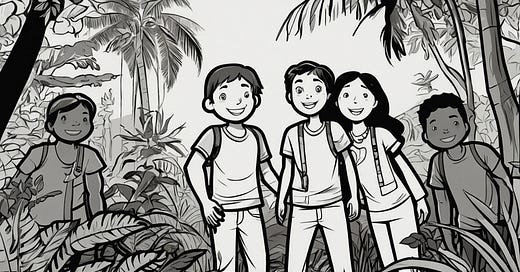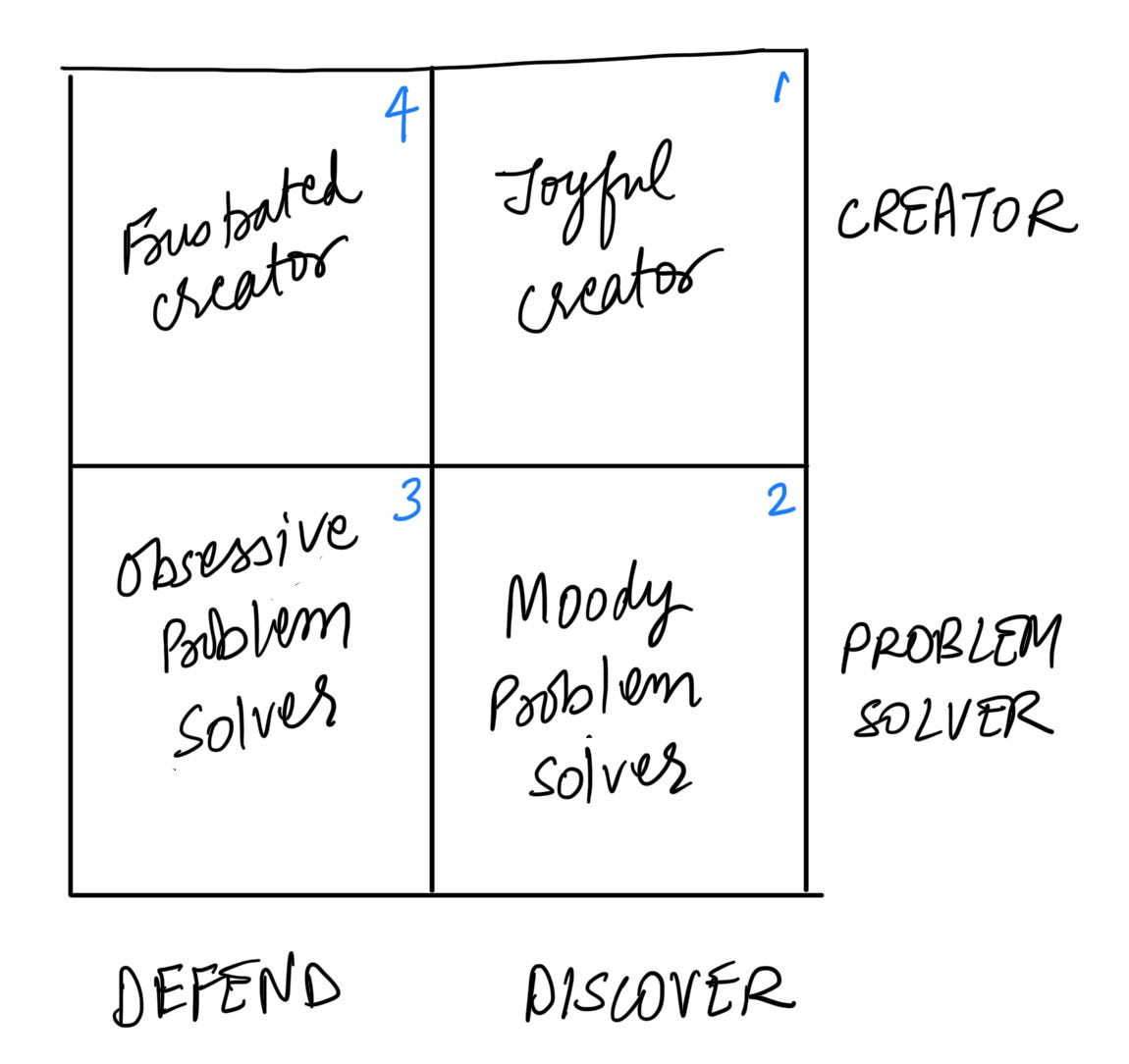I was reading John Haidt’s new book - The Anxious Generation - that talks about two different kinds of mindsets (that we have acquired from an evolutionary POV):
Behavioral Activation System (BAS) - discover mode
Behavioral Inhibition System (BIS) - defend mode
Your ‘discover mode’ turns on when you feel safe and detect opportunities, such as suddenly coming across a tree full of ripe mangoes, just when you and your group were feeling hungry.
In the discover mode, you are happier, sociable, and more eager for new experiences.
The ‘defend mode’ in contrast, turns on when you think there is a threat around (say when you hear a tiger roar nearby as you’re picking those mangoes). You stop what you are doing. Your appetite gets suppressed. The body gets flooded with stress hormones. And your thinking turns entirely to identifying the threat and finding ways to escape it (or may be if you have a weapon, confront it).
The issue is…
when the threat is unreal (and just in your head), then because of your anxiousness and defensiveness, you end up devoiding yourself of the opportunity to learn and grow.
If you hadn’t assumed that someone out there was there to harm or attack you, you could have discovered things beyond your assumptions.
This made me reflect on my creator vs problem-solver lens of looking at the world and so I drew this 2X2:
As a creator, being in the discover mode brings me max joy. But I can imagine creators with low self-esteem perenially worried about how someone might make fun of them / their creation, or threaten them, show them their place etc. Such creators with their defend mode on, would be frustrated creators. All creators could shuffle between the two modes, but I think that a creator will likely be more joyful in the discover mode than defend.
For problem-solvers though, both defend and discover mode seem important to me. A good problem solver should be able to navigate from quadrant 3 to 2 so that their energy shifts from first obsessing about the problem to then also solving it. In fact, the issue in my opinion is less with which mode is on, but whether the problem is real or imaginary.
A problem solver who is mostly in the defend mode - without shifting to ‘disover’, could have a pessimistic approach towards life and like the frustrated artist, might eventually fail in actually solving anything.
At the same time, I think a problem solver who is always in the discover mode, will get bored very quickly with whatever they are doing and will joyfully move from one thing to another, never settling down. I am not sure if that’s a good thing or a bad, but I may imagine that no problem that they sit on, will ever get solved completely.
Anway, just thought of putting together this 2X2 construct because the broad idea came to me, just like that, while reading the book that I mentioned above. It did take a while to articualte it. But I am glad I did. Will reflect on it in the future. May be it’s just a random 2X2. Or may be I start loving this way of seeing creators and problem-solvers in the years to come. We will see.
See you soon. May you get to do more of what brings you joy and less of what sucks it away. Be self-aware, own your emotions. And have a great day!






I was thinking precisely about this defend vs discover thing last week, without the context you’ve pit here (haidt’s book etc). I’ll try to build on this and write soon